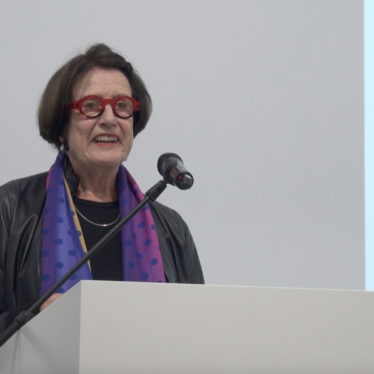“Migrancy…involves a movement in which neither point of departure nor those of arrival are immutable or certain. It calls for dwelling in language, histories, in identities that are constant subject to mutation” (Chambers, 1994)
Allthough the discourse on non-western arts is often still dominated by a –positive or negative – binding to western origins and orginality, there is a explosive process of re-setting ( re-appropiation, re-negotation, reframing, re-enactment, re-contextualization, re-location) in actual global developments. New ‘Translation Studies’ concentrate on the philosophical and ideological problems around this intercultural migration of aesthetic modelling. But in the domain of the Imaginary, we meet in the global practices of visual arts, performance, theater and dance, a de-constructed, de-hierarchizised liberated bodily space where artworks and artists demand to be seen in their own context with their own sensorial strategies and their own topics. Western modelling is send back to the eye of the beholder, it is what is new in the re-setting that must be discovered in their work: themes, stories, perspectives, forms, diversions.
Migrancy then is part and parcel of these artists world: they travel constantly between places and spaces, return to roots and transform rituals, stories, histories making visible the invisible, the forgotten, the unsayable.
Global art, as Mieke Kolk saw so sharply in the Sjarjah Biennale 2019 – a deeply religious Emirate that nevertheless invites young, progressive and relatively unknown, artist and curators from all over the world – is obsessed by reconstructing local memory and digging for collective histories of all that is lost or transformed by time, war, destruction or just modernization. It tells a story of grief and mourning, of suffering and death pointing to “the tragedy of the commons” (Williams, 1966)
In her lecture Mieke Kolk explores in the imaginarium of different art-products, in the dramaturgical material that is structuring meaning and experience, the strategies artists use to formulate new insight and knowledge about what identity could mean and how we could formulate new identifying solidarities cross-cultural, where we can share in many diversities.
The lecture «Emotional Identification and Abjection» by Mieke Kolk took place on 15 November 2019 at the symposium «Crisis and Communitas». With an introduction by Daniela Hahn.
© www.crisisandcommunitas.com
Mieke Kolk taught at the Royal Academy of the Arts and the University of Amsterdam Theater Studies, and was visiting professor in the USA, England and Germany. She specialized in contemporary theater and opera, and has a running program on cultural exchange with Arabic/African countries. (www.artafrica.org) She publicized books and articles on feminist theory, women’s theater, music theater, and intercultural comparative drama and theater in the proceedings of East-West conferences in Europe and Africa
